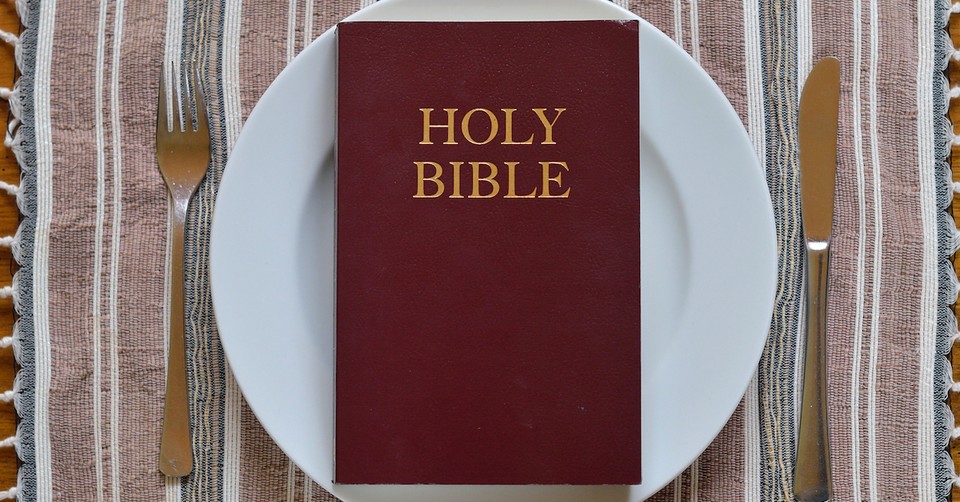Why Fasting Is the Key to Breaking Free from Destructive Habits

You choose: Will it be the pain of discipline or the pain of regret? One yields a sense of extreme fulfillment; the other, a lingering sense of defeat. Ironically, we pray for God to heal when we should also pray for the self-discipline to change harmful habits. Fasting is hard because self-denial is hard (discipline), and overindulging is not rewarding (regret). It becomes a never-ending cycle of defeat unless we break the cycle by choosing discipline over regret as we seek the will of God.
A Slave Either Way
God teaches us through discipline because He loves us. We are also encouraged to discipline our bodies to experience breakthroughs. We cannot effectively be filled with the Spirit and lack discipline. Our faith is not passive; it’s active faith.
Romans 6:16 (NASB) sheds much-needed light: “Do you not know that when you present yourselves to someone as slaves for obedience, you are slaves of the one whom you obey, either of sin resulting in death, or of obedience resulting in righteousness?”
Either way, we are slaves — we are either God’s servant or a slave to our passions and desires. Self-discipline is a fruit of the Spirit, according to 2 Timothy 1:7.
Fasting Is Not Legalistic
Those who say that fasting is legalism are dead wrong. We are called to yield to the Spirit and quench sin — but when we yield to sin, we quench the Spirit. The vast majority of the heroes of the faith fasted, and it’s still very common in many places. But in America, our fullness is our downfall. Leonard Ravenhill said, “When there’s something in the Bible that churches don’t like [such as fasting], they call it legalism.”
Fleshly appetites are subdued when fasting. Fasting is challenging because the flesh always wants to negotiate with us. It says, “Can’t we meet in the middle? Don’t completely remove food — that’s too extreme!”
Leaders Are Called to Fast
Self-control is also required for leadership. In Titus 1:8 (NIV), Paul adds that a leader “must be hospitable, one who loves what is good, who is self-controlled, upright, holy and disciplined.” John Wesley required fasting so that his leaders disciplined their appetites rather than allow their appetites to rule them.
It’s been said for centuries that no man who cannot command himself is fit to command another. Paul told the Corinthians that he strikes a blow to his body and makes it his slave so that he will not be disqualified for service (1 Cor. 9:27). An undisciplined leader is an oxymoron.
We also see the power of fasting in Joel 1:14 when the leaders are called to it: “Consecrate a fast, call a sacred assembly; gather the elders and all the inhabitants of the land into the house of the Lord your God, and cry out to the Lord.”
Fasting Weakens the Flesh
The magnitude of the situation determined the response. God’s people had departed from Him. The call was to return through fasting, prayer, and brokenness. Fasting is depriving the flesh of its appetite as we pray and seek God’s will and mercy. We are saying, “The flesh got me into this predicament, now it’s time to seek God’s mercy and humble myself before Him.”
Obviously, people have overcome challenges without fasting, but fasting adds extra strength, especially when overcoming addictions. One addiction may end, but others can continue. The alcoholic switches to caffeine, the nicotine addict switches to sugar, and the opioid user switches to food. It’s a never-ending cycle, but fasting can break the cycle. However, fasting is not a cure-all or a magic wand; it’s a spiritual discipline designed to aid in victory. Again, choose the pain of discipline over the pain of regret.
The Physical Affects the Spiritual
Through fasting, our body becomes a servant instead of a master. When Jesus directs us, the outcome is always beneficial, spiritually and physically. Notice He said, “When you fast” (Matt. 6:16). Scripture doesn’t say, “When you sin, and if you fast,” but rather, “If you sin” and “When you fast.”
The obvious goal and benefit of fasting is spiritual, but there are physical benefits as well. Can we pray and seek God with all our heart with a headache, tight pants, and a sluggish, lethargic body strung out on our favorite addictive substance? Of course not.
Does the way you feel affect your productivity and the quality of your life? Absolutely. Our diet affects key hormones such as serotonin for relaxation, dopamine for pleasure, glutamate for healthy thinking, and noradrenaline for handling stress.
If we allow junk food and addictions to control our attitude and productivity, it will hinder what we do for God. When we’re always dealing with stress, anxiety, and sickness, can we do much for God? No, we will be limited. Granted, there are those who, through no fault of their own, have a debilitating illness. I’m assuming the reader understands that I’m talking to those who can make changes.
The Key: Fall Forward
What you put in the mouth (body) and the mind (soul) affects the spirit — and when you feed the spirit, it affects the body and the soul. I’m often asked to pray for panic attacks, angry outbursts, and anxiety. That can be done, and God honors prayer, but are we opening the door to these things by not halting highly addictive caffeine, sugar, opioid, or nicotine habits? Or are we renewing our mind by meditating on the Word and spending time in prayer?
Again, the physical affects the spiritual, and the spiritual affects the physical. Much of the healing that I have witnessed over the years was the result of renewed stewardship of the body. You can do this … it’s all about falling forward.
WATCH: Full Length 40-day Fasting Documentary w/ Q-and-A | Shane Idleman
*The opinions in this commentary do not necessarily reflect those of Crosswalk Headlines.
Photo Courtesy:©GettyImages/RoterPanther
Published Date: October 1, 2024
The views expressed in this commentary do not necessarily reflect those of CrosswalkHeadlines.
Shane Idleman is the founder and lead pastor of Westside Christian Fellowship in Southern California and the WCF Radio Network. More can be found at ShaneIdleman.com. Free downloads of his eBooks can be found at www.WCFAV.org. Visit him on Facebook and Twitter. Subscribe to his new podcast, Idleman Unplugged. You can also follow Pastor Shane on the free speech platform Parler.
Originally published October 01, 2024.





